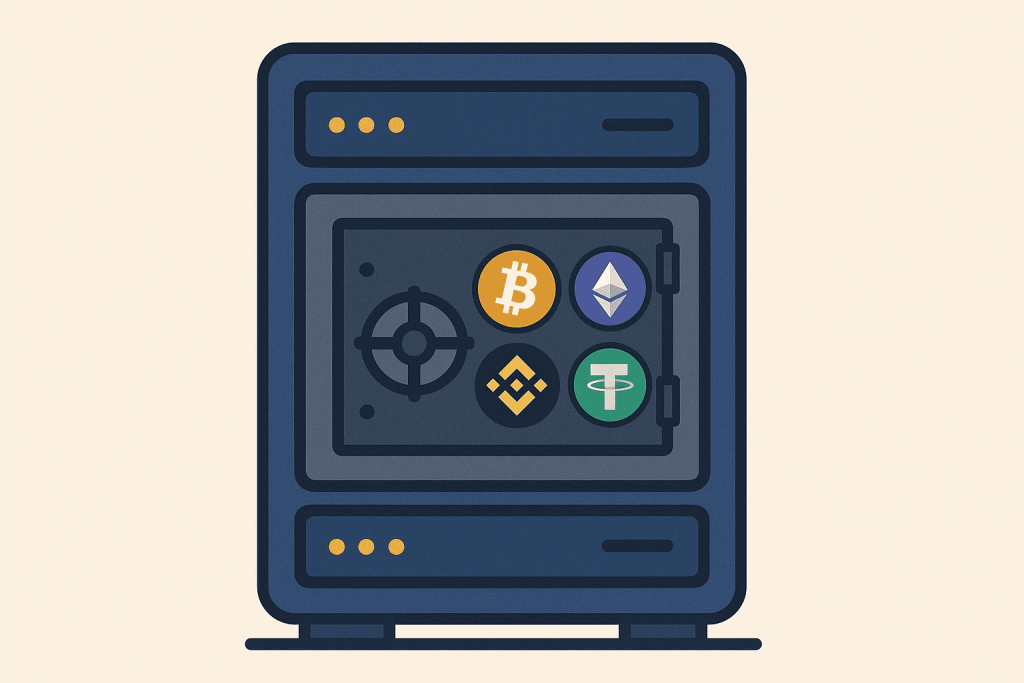
In the world of cryptocurrencies and decentralized systems, the issue of security is especially critical. The way you store your private keys determines not only access to your digital assets but ownership itself. Blockchain doesn’t have options like “forgot password” or “restore access via email.” If a private key is lost or stolen — it’s gone forever. That’s why more and more users are switching from online wallets to their own servers, where they can fully control how their keys are stored. But how can you do this safely so that your server doesn’t become the weakest link in your system?
Why You Should Store Keys on Your Own Server
Having your own server isn’t just an alternative to “cloud” solutions — it’s a way to gain full control over your data. When you use an online wallet or exchange, your keys are actually stored by a third-party company, and even if it has an excellent reputation, no one is immune to hacks or data leaks. By keeping your keys on your own server, you become the sole owner and administrator of your data. However, this approach requires technical competence and strict discipline: you must take care of system security, backups, and physical protection of the equipment.
Core Principles of Secure Storage
The first rule is to separate environments. A server used for daily operations should not also serve as a key vault. Ideally, there should be a dedicated system isolated from external access — or even a separate device with no direct internet connection. You can generate keys and sign transactions in an offline environment, then transfer only the signed data to the online server. Large crypto companies follow this approach to minimize the risk of network breaches.
The second rule is encryption. Even if your server is compromised, an attacker shouldn’t be able to simply copy and use your key files. Using symmetric or asymmetric encryption algorithms (such as AES or GPG) helps protect private key files with a password or an additional token. Keys should always be stored in encrypted form, even within your internal system — especially if other users or administrators have access to the server.
Securing the Operating System and Access
Key security starts with the server’s operating system. Keep the system updated, install only essential software, and strictly manage access permissions. If you connect to the server via SSH, disable password logins and allow only key-based authentication. It’s also worth setting up two-factor authentication, IP restrictions, and activity monitoring. A server with an open port visible to everyone on the internet is an open invitation to hackers.
If you’re using a Virtual Private Server (VPS), choose a trusted provider that ensures resource isolation, offers DDoS protection, and allows you to set up your own firewalls or VPN tunnels. Some users even rent dedicated physical servers to fully control their environment and eliminate shared infrastructure vulnerabilities.
Backup and Physical Security
Backups of your keys are just as important. However, a backup should not just be a duplicate file — it must be an encrypted archive stored separately from the main server, for example, on an external drive or another device that’s physically inaccessible to others. Frequently connecting your backup drive to the internet or the main server can defeat the purpose of security. If possible, use offline storage or dedicated hardware wallets that prevent direct export of private keys.
Don’t overlook the physical aspect either — the server should be housed in a secure location, preferably with restricted access, backup power, and stable cooling. If you colocate your server in a data center, make sure it’s certified for security and monitored around the clock.
Trust Begins with Control
Storing blockchain security keys on your own server is not just a technical decision — it’s a philosophy of control. You take on responsibility, but in return, you gain full independence from third parties. In a world where every byte can be worth real money, control over private keys defines true ownership of cryptocurrency. Proper server configuration, environment isolation, encryption, backup management, and user discipline — that’s the formula for real security in the digital economy.
And if you’ve decided to build your own infrastructure for storing cryptographic keys, choose a reliable server with strong protection and a stable connection. In the blockchain world, even a single mistake can be too costly — true security begins where you fully control your own server.

Leave a Reply